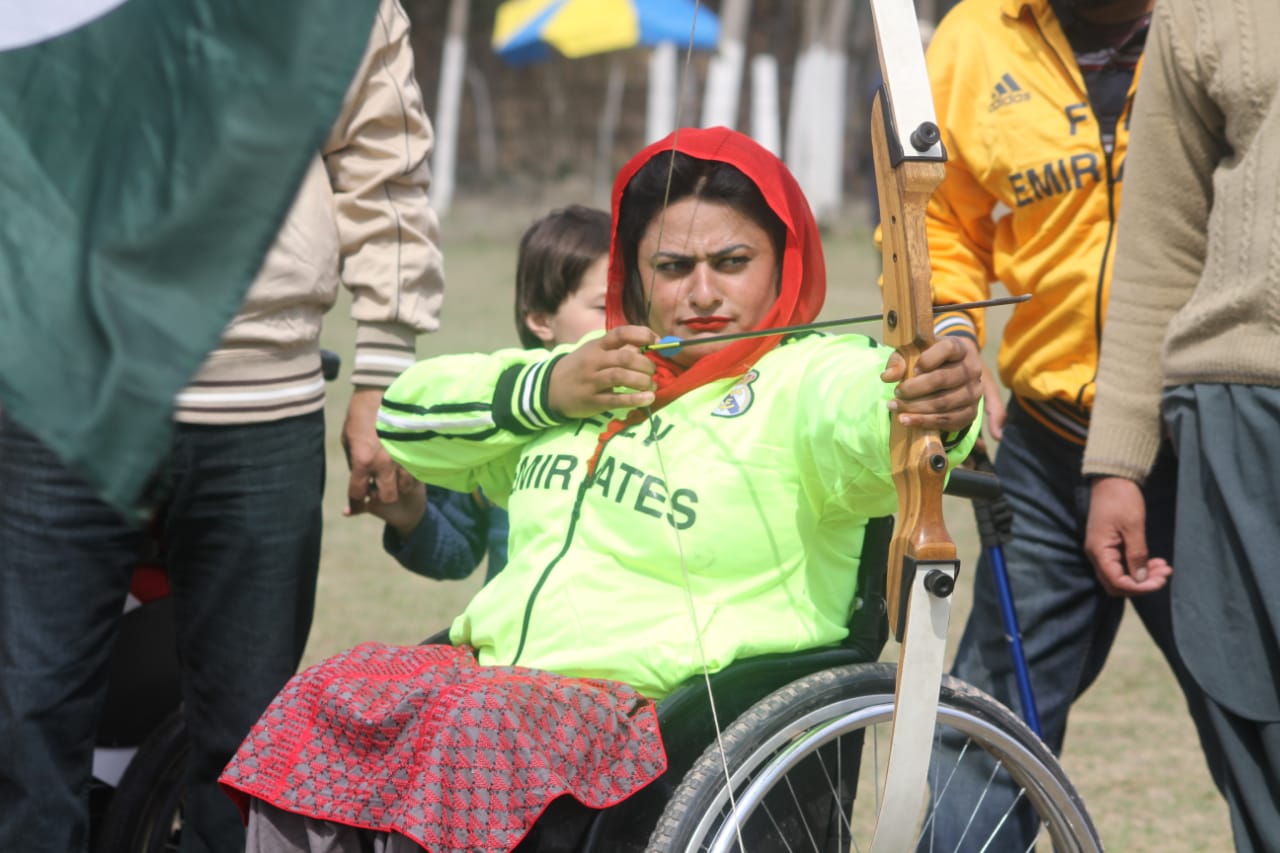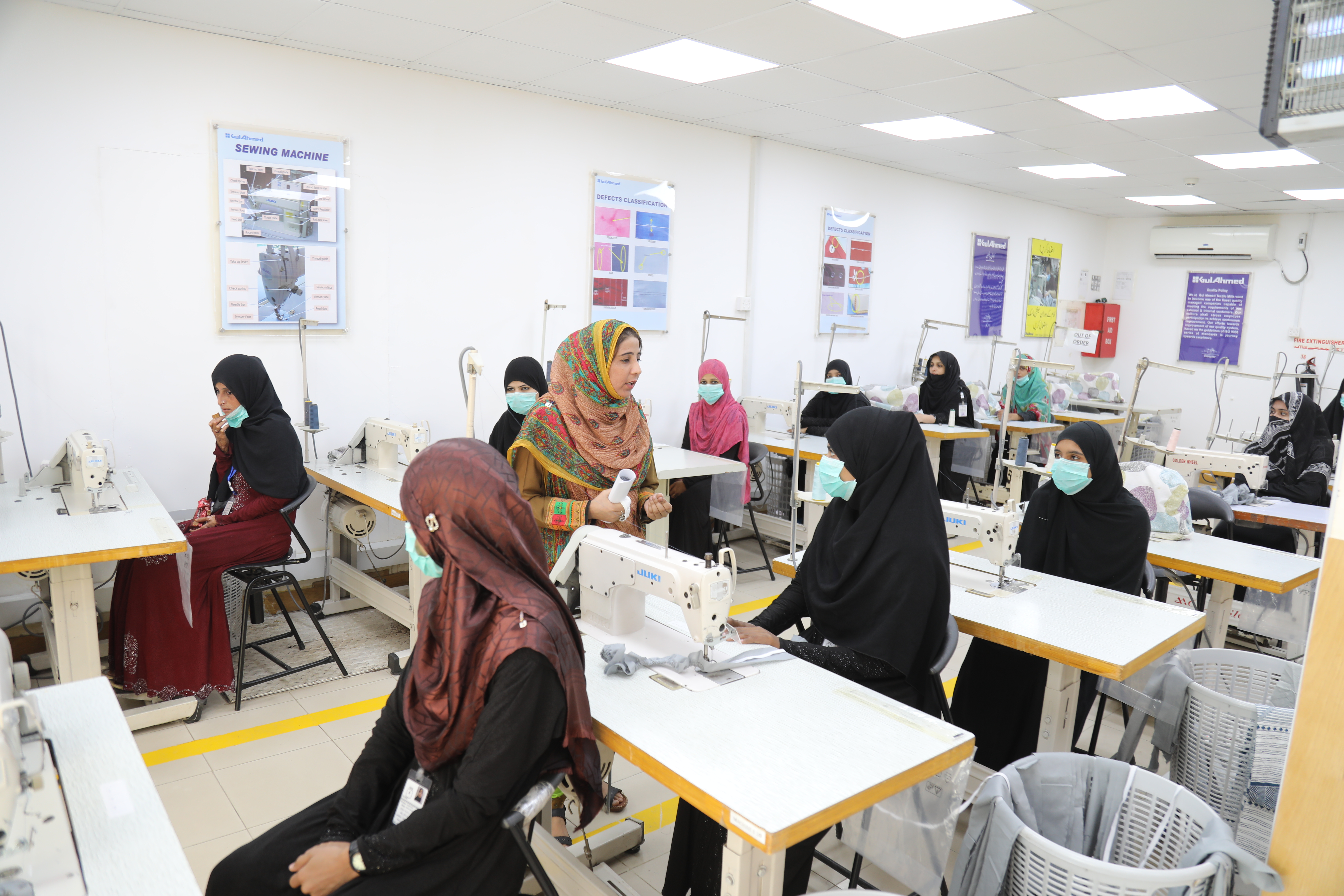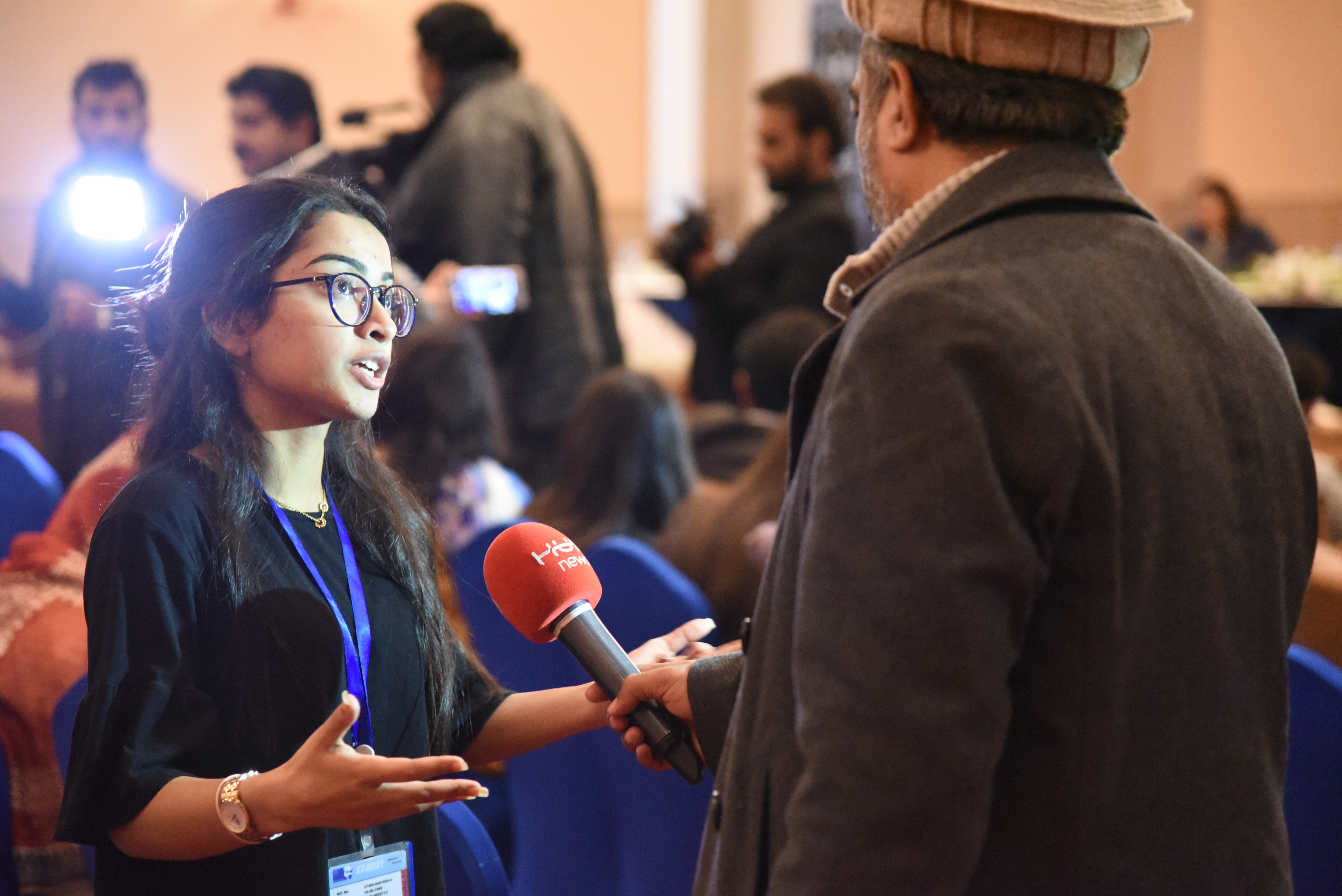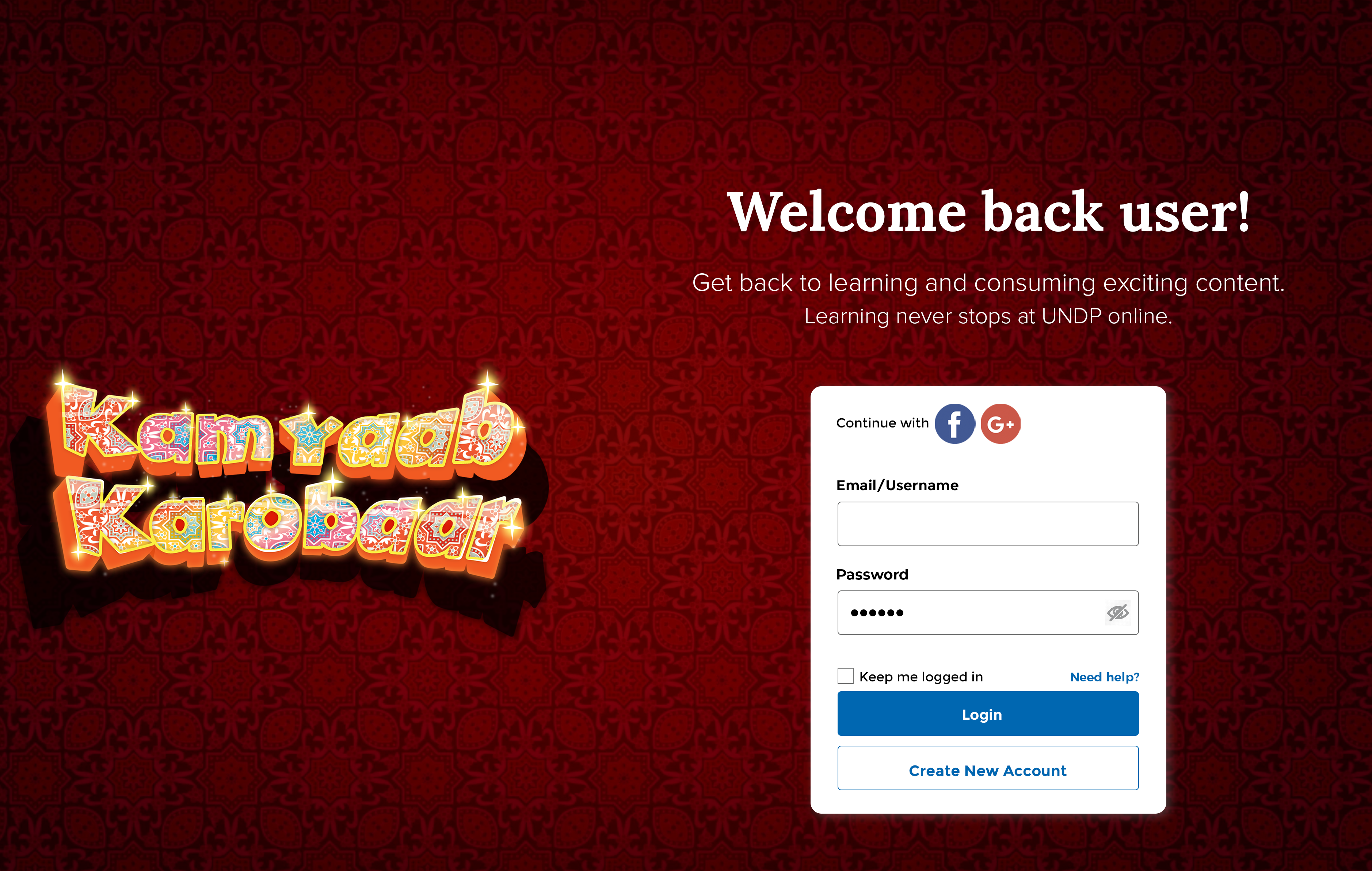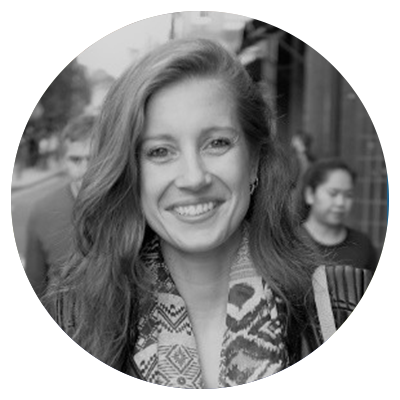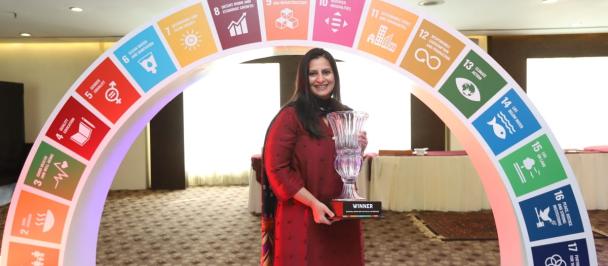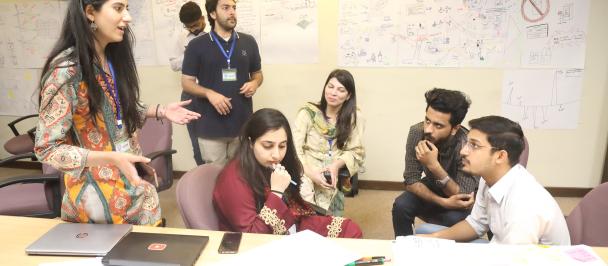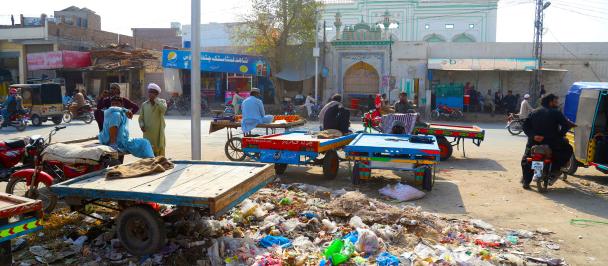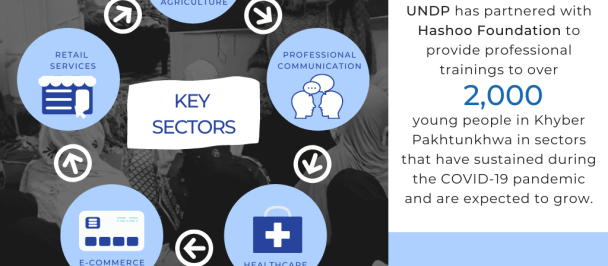This is part 2 in a series of blogs charting the journey of UNDP Pakistan’s Innovation Portfolio and the Youth Empowerment Programme to test, adapt & scale innovative approaches for achieving development outcomes. Read part 1 here.
With a population of 197 million, and with 68% of the nation younger than 30 (and 27% between the ages of 15 – 29; an age group which Pakistan defines as youth), Pakistan now has more young people than ever. YEP believes that a wealth of untapped problem-solving potential is hidden within young people – and collaborated with the Innovation Portfolio to brainstorm the best way of harnessing this for positive social impact.
A youth-focused innovation challenge offered an approach that would empower young people to become active agents of change within their communities by offering them the driving seat in the search for new, more effective and sustainable ways of achieving positive development outcomes and achieving the SDGs. At the same time, using a challenge as a model of open innovation would give UNDP access to diverse sources of ideas and talent for solving complex social problems. The challenge, co-designed by the Innovation Portfolio and YEP gave young people the space to identify the problems within their own communities and come up with innovative ideas to overcome these. In return, UNDP would support them in tackling these challenges and teach them new skills to refine their creative solutions.
(Read the detailed blog on our experience here). The lessons learnt end of the challenge allowed us to adapt and re-design the challenge, for its second round, in which we narrowed down the SDGs we wanted young people to submit solutions for. We also used technology to enhance our outreach by partnering with Viamo, a global organization with expertise in ICT4D, to push out SMS messages with links to the web application form. Our approaches became more flexible for providing mentorship support to the winners, and we focused more on connecting young people to build a community of problem-solvers.
So far, the challenge has proved to be more cost-effective than a traditional grant giving modality. At the same time, it demonstrates that open innovation can give rise to valuable new approaches that have the potential for impact and scale – one of the women participant of the Youth Innovation Challenge, has been asked by the government to scale-up her project which focuses on the provision of life skills and psychosocial support for children in schools. Till date over 2,400 young people have been constructively engaged through projects undertaken by the award grantees.
The second round of the Youth Innovation Challenge was launched in May 2019. The same model was retained, however the applications sought were on thematic areas identified as concerns during grassroots dialogues conducted by YEP as another initiative. An unprecedented 2,800 applications were received, out of which 100 have been shortlisted and will be receiving grants soon.
Using mobile technology to reach budding entrepreneurs: does it work?
The potential to use technology to achieve scale in terms of reach and impact is high. In view of the rapidly changing employment market of the future that many young people are facing globally, it had become increasingly critical for UNDP Pakistan’s Youth Empowerment Programme (YEP) to innovate in its approach to not only providing skills training for young people but to also reach further and wider regarding which groups of young people we work with. Although Pakistan’s social entrepreneurship ecosystem has been buzzing in the last couple of years, it is still in its nascent stages with many initiatives targeting urban youth. At UNDP we asked ourselves, “How can we reach millions of youth that are illiterate, in rural and/or remote locations and deliver effective training to them on entrepreneurship as an employment option?”
In our quest for more reach, new partnerships, innovative thinking and greater impact we partnered with Viamo, a global organization with expertise in providing behaviour change solutions using ICTs, and Telenor, Pakistan’s second largest mobile operator, to co-design a one-month pilot experiment in how to deliver entrepreneurship training over mobile phone using voice messages. With our challenge being how to reach more remote groups of youth; particularly less literate rural populations, we saw an opportunity to capitalize on the fact that 86% of Pakistan’s 154 million cellular subscribers are aged between 10-30.
Choosing to deliver content via voice message, known as Interactive Voice Response (IVR) meant that, crucially, people did not need to be literate to listen. It successfully allowed us to expand our engagement to populations of youth who are more marginalized, don’t have smartphones or internet connectivity, and who can’t bear high mobile costs. Having never approached the delivery of training in this way before, conducting a pilot to identify what did and did not work was critical.
Two pilots were conducted for the IVR content where Karobar Asaan Content (Easy Business) was hosted through two teams at Telenor to assess the engagement level of users. One pilot was conducted with a predominantly rural and less literate population and the second pilot was conducted with a relatively more urban and more literate population. A total of 279,691 users were engaged across two distinct pilot approaches; 26,710 users from pilot 1 and 252, 981 users from pilot 2. Building on to the pilots conducted by Viamo, YEP now aims to impact specific communities with business skills development content in regional languages (Pashto, Sindhi and Siraiki) as the IVR content went live at the end of the July. It is accessible using simple phones and it is free of cost for end beneficiaries. The content builds on to International Labour Organisation’s Community-Based Enterprise Development (C-BED) curriculum and a compelling story line to maximize engagement and knowledge retention among youth at scale.
To make sure we “close the loop” in providing training on future-focused skills and continuing to support young people to become productively engaged in society, we concurrently engaged Knowledge Platform, an internationally renowned firm with the expertise in developing interactive video-based content, to design a mobile app and online platform to deliver more content on entrepreneurship training for internet-connected young people in Pakistan. The vision is to innovate in the delivery of complimentary and mutually-reinforcing entrepreneurship training via various technology mediums. The app includes 13 modules consisting of videos based on a storyline, an interactive game, and quizzes to engage the users in entrepreneurship content. The videos, game and quizzes have been developed, and the user testing was carried out to receive feedback on the same. The final app is expected to be ready by mid-October and will be tested out on trainees from on-the-ground trainings on entrepreneurship to assess the impact of digital knowledge on the ground.
Last but not least, this initiative represents for UNDP Pakistan a new model of engagement and partnership with the private sector. When such content is well-designed and targeted, high engagement rates may translate into profits for our telecom partner, Telenor Pakistan. Engaging content therefore becomes worth owning or commercializing for permanent hosting on the mobile network and is an example of how the “for profit” and “for good” sectors can work together to achieve mutually beneficial outcomes.
The final blog in this 3-part series will reflect on the lessons learned and the future of innovation in UNDP Pakistan.
Author:
Ilena Paltzer
Ilena Paltzer has worked for UNDP Pakistan as Innovation Coordinator, and for the FATA Governance Project on Coordination, Partnerships, and Innovation. She has also worked for the UN in South Sudan, across the East & Southern Africa region, and New York. Ilena is interested in finding new approaches for achieving sustainable and holistic social impact and pushing the sector to reconsider the way we "do development". She is also particularly interested in innovative ways of strengthening women's agency and engagement in these processes

 Locations
Locations
